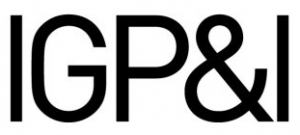
English court extends basis on which shipowners can avoid responsibility for cargo operations – the EEMS SOLAR.
Published 25 February 2014
In 2004 the House of Lords (now the Supreme Court) upheld a decision (the JORDAN II) that a bill of lading carrier could rely on FIOS (free in/out stowed) terms, incorporated from a charterparty, to contract out of responsibility for loading, stowing and discharging the cargo.[1] Even where the Hague-Visby Rules apply, and which oblige the carrier to properly and carefully load, stow, discharge etc., the English court have long held the view that the Rules did not necessarily impose a duty on the carrier to undertake all such operations, rather, to undertake those which he has agreed to undertake in a proper and careful manner. Interestingly, the Rotterdam Rules contain provisions whereby a carrier can relieve himself of liability for cargo handling and stowing operations, which suggests a wider recognition of the English court’s view, though the situation today in most countries is that the carrier’s duties are non-delegable.
In a more recent case before the English Admiralty Court, a shipowner was again successful in avoiding responsibility for cargo damage caused by poor stowage, where the bill of lading incorporated FIOS charterparty terms. The English law firm, Hill Dickinson LLP, acted for the shipowner.
What is of particular note is that, unlike the FIOS charterparty term in the JORDAN II, the relevant term in the EEMS SOLAR (from the widely-used Gencon 1994 charterparty form) made no reference to shippers or receivers, only the charterers. Importantly however, it did refer to operations being ’free of any risk, liability and expense whatsoever to the owners’.
The case also provides useful commentary when owners will nevertheless be responsible due to the master’s intervention or lack thereof. In the EEMS SOLAR there was no evidence of significant intervention by the master and the situation remains that, even if, for example, poor stowage amounts to unseaworthiness, responsibility will only be transferred to owners if it arises out of something within the master's province, such as the stability of the ship, but not if it arises out of some defect in the stowage which is purely within the province of the stevedores.
Despite the Hague/Hague-Visby Rules, English law recognises that parties have freedom of contract as regards the scope of FIOS terms and that liability for loss/damage that arises therefrom can be avoided if terms are sufficiently clear. In the EEMS SOLAR the carrier under the bill was also the owner under a voyage charterparty subject to English law and because the bill of lading properly incorporated the terms of the voyage charterparty (the bill being on the Congenbill 1994 form) liability for bad stowage was avoided. Shipowner Members should therefore be aware of this when similarly fixing their ships and issuing bills.
Questions or comments concerning this Gard Insight article can be e-mailed to the Gard Editorial Team.
Related Articles



